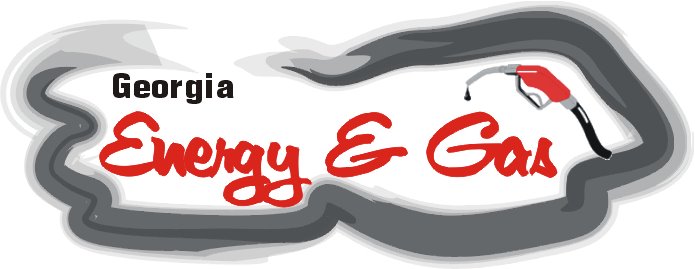/PRNewswire/ -- Today the U.S. House Subcommittee on Energy and the Environment continued its hearing on the "American Clean Energy and Security Act of 2009." Additional information is available at http://energycommerce.house.gov/
American Chemistry Council (ACC) President & CEO Cal Dooley issued the following statement:
"ACC commends the Subcommittee for holding a series of hearings on this legislation. We support policies to reduce greenhouse gas emissions. American chemistry provides climate solutions used by consumers and businesses throughout the United States to save energy and reduce emissions: our products go into energy efficiency and renewable energy applications from insulation and solar panels to wind turbines, lightweight vehicle parts and many others. In our own operations, between 1990 and 2007 energy efficiency improved 27 percent and greenhouse gas emissions fell by 13.2 percent - among the most significant improvement of any sector.
"We have carefully reviewed the draft bill and have thoughts on a number of provisions:
"Allowance Allocation and Targets/Timelines - Climate policy should align greenhouse gas emissions reduction timelines with the availability of low-carbon energy and technologies and stable price signals. We believe the bill's aggressiveness on the number of emission allowances and targets pre-2020 could lead to allowance scarcity and price volatility that could render inadequate the bill's provisions intended to prevent 'leakage' of greenhouse gas emissions to other nations. We recommend increasing the total number of emission allowances in the early years of the program. Given uncertainty surrounding the development and deployment of carbon capture and storage and other low-emission technologies, we also suggest a lower reduction target through 2020, with larger emissions reductions during later years.
"Competitiveness - Unilateral policies to regulate greenhouse gas emissions have the potential to drive manufacturing production, jobs and greenhouse gas emissions overseas - a phenomenon known as carbon leakage. A cap-and-trade approach imposes higher costs on domestic industries due to both compliance and higher fuel and energy costs - impacts that could exacerbate the leakage problem. The chemical industry is among those at the greatest risk of domestic contraction, according to the non-profit, non-partisan research organization Resources for the Future, which has done extensive research on the leakage issue in the context of cap-and-trade.
"We commend Representatives Inslee and Doyle for development a framework designed to prevent the leakage of jobs and emissions to overseas markets. We strongly urge the committee to make certain changes to enhance the effectiveness of the framework. We have shared our specific recommendations with the Committee.
"Feedstock Credit - The chemical industry uses natural gas, natural gas liquids, petroleum and coal as raw materials, or "feedstocks," for our manufacturing. This process, which converts most of the fuels into products, does not emit greenhouse gases and should not be covered by the legislation. Unfortunately, the compensatory allowance provisions in the draft bill are insufficient to ensure that feedstocks will not be regulated. We hope to work with the Committee and the Subcommittee to remedy this issue.
"Cost Containment and Fuel Switching - We believe climate policy should be reasonable and balanced to prevent significant natural gas price increases caused by massive utility "fuel switching" from coal to natural gas. We believe the overly aggressive emission reduction timelines in the bill, without balancing policies, would cause higher natural gas demand and higher prices for all consumers and make it more difficult for U.S. industries to compete in the global market. To minimize fuel switching, we recommend that the bill provide covered facilities with a range of options and tools for reducing their emissions. These include renewable electricity programs, utility energy efficiency programs, end-use efficiency standards (buildings, appliances, and transportation), a large pool of offsets, and a robust carbon capture and sequestration (CCS) plan. The same strategies can help manage the price and volatility of carbon permits.
"Technology Deployment - Deploying low-carbon technologies is critical to a successful climate program and to achieving near-term emission reduction targets. While we noted that the bill creates incentives and mandates to deploy certain types of "clean energy" (e.g., the Renewable Energy Standard, CCS investment, and energy efficiency), other effective technologies are largely ignored. Moreover, the bill does too little to promote investment, improvement, or expansion of Combined Heat and Power (CHP). Oak Ridge National Labs and other experts have concluded that CHP and other forms of recycled energy are grossly underutilized and should be viewed as a major contributor to low-carbon power generation. CHP should be put on equal footing with other clean energy technologies.
"Energy Supply - Affordable and available energy is closely linked to climate policy. For example, natural gas is used for renewable energy production, for the manufacture of energy-efficient materials, and as a lower-carbon electricity source - all key to reducing emissions. However, because natural gas is priced regionally, regional energy policies significantly influence natural gas supply, demand and prices. Consequently, U.S. consumers face higher natural gas prices than do those in nations whose policies bring about more available natural gas. This puts U.S. chemical makers and other manufacturers at a competitive disadvantage in the global market. To help remedy the situation, Congress must pass a comprehensive, bipartisan national energy policy that improves energy security, reduces greenhouse gas emissions, and ensures that U.S. companies have access to competitively-priced natural gas.
"In 2008, the longstanding presidential and congressional moratoria on energy development in the Outer Continental Shelf (OCS) were lifted, helping the nation take the first step toward unlocking known U.S. energy reserves. To help bring about a sound, comprehensive climate policy, America's off-shore and on-shore energy reserves must be thoroughly researched and produced in an environmentally protective manner.
"We support responsible policies to reduce greenhouse gas emissions across the economy. We encourage Congress to continue working toward climate legislation that achieves the core purpose of reducing GHG emissions while preserving robust growth in the United States economy."
-----
www.fayettefrontpage.com
Fayette Front Page
www.georgiafrontpage.com
Georgia Front Page
Follow us on Twitter and Facebook
Thursday, April 23, 2009
Subscribe to:
Post Comments (Atom)



No comments:
Post a Comment